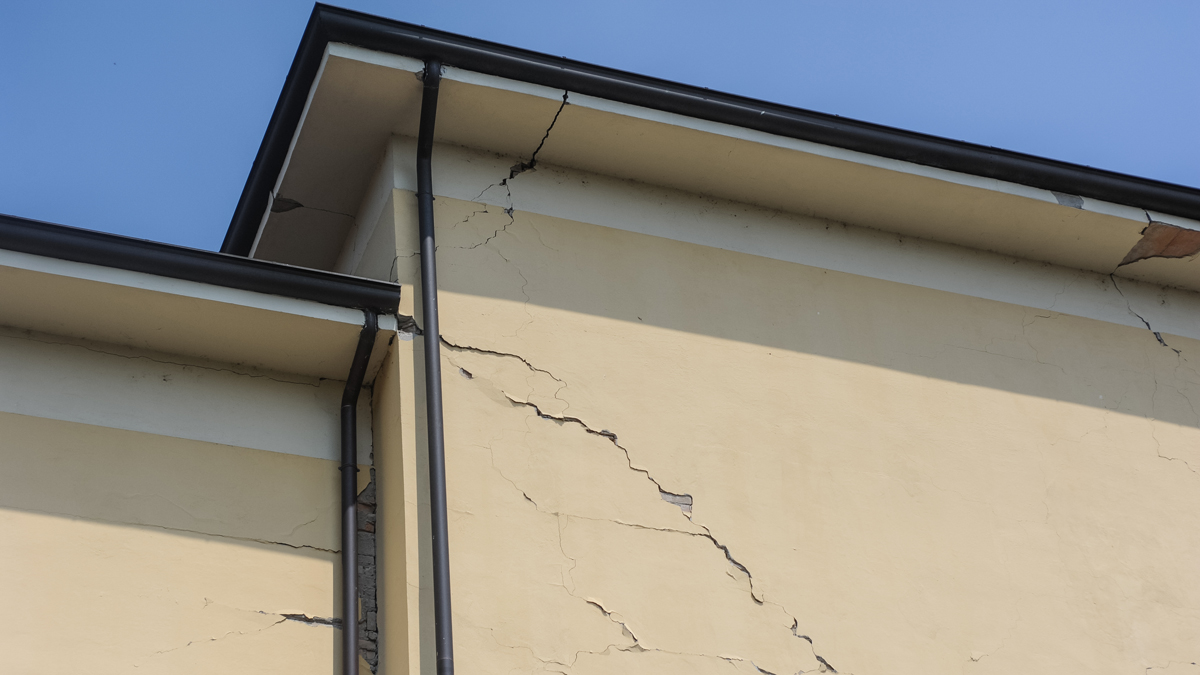Get our independent lab tests, expert reviews and honest advice.
Backroom deals in strata insurance and how they’re costing you

Need to know
- Owners' corporations are unlikely to know about the chummy relationships between strata management companies and insurance brokers
- In 2020, about $137 million was paid to insurance brokers and strata managers in commissions, up from about $82 million in 2016
- The commission plus the broker fee can increase the cost of insurance by as much as 40%
There are a lot of moving parts when it comes to strata insurance, and a lot of the movement is hidden from the people who pay for it.
It all comes down to the complex dealings between strata managers and the insurance industry – dealings that often involve undisclosed commissions and payments.
The result is that individual strata owners may be paying more than they should.
Strata managers, brokers, commissions and fees
Many owners’ corporations (also called a body corporate) outsource tricky matters such as insurance to external strata management companies and might not understand how these commissions affect their premiums, most often paid by individual strata owners through their strata levies.
Owners’ corporations are also unlikely to know about the chummy relationships between strata managers and insurance brokers.
It usually works like this: the strata manager goes through a broker to find insurance for the building, and the broker receives a commission from the insurance company for selling the policy, generally around 20% of the premium.
The insurance broker then passes this commission along to the strata manager – a sort of thank you for bringing the business their way.
Is the strata manager serving the owners’ corporation and individual strata owners’ interests, or their own?
In 2020, about $137 million was paid to insurance brokers and strata managers in commissions, up from about $82 million in 2016.
But the broker doesn’t go away empty handed. They then charge a fee to the strata manager to make up for the lost commission, and this gets wrapped into the costs that individual strata owners pay.
The commission plus the broker fee put together can increase the cost of insurance by as much as 40%.
It doesn’t help that many owners’ corporations and individual strata owners are largely disengaged from the process and have no idea what’s going on.
All these commission payouts could mean strata managers haven’t thoroughly researched the market to find the best deal for the owners’ corporation. They would be acting as an agent for both the insurance broker and the owners’ corporation – a classic conflict of interest.
So is the strata manager really serving the owners’ corporation and individual strata owners’ interests, or their own? It’s a question some consumer advocates have been asking lately.

Breaking down the costs
It all adds up and, as with insurance in general, strata insurance has gotten more expensive in recent years.
In most cases, a lack of transparency is to blame. Consumer advocates argue that all aspects of strata insurance should be laid out for owners to see. A breakdown of the costs would include:
- the base premium
- government charges, stamp duty and GST
- the commission payment from insurance company to broker (and the handing over of this commission to the strata manager)
- the fee charged by the broker to the strata manager to make up for the loss of commission.
According to a 2021 Deakin University report, collective insurance costs for strata owners went from around $619 million in 2016 to $1.08 billion in 2020.
Average costs to owners’ corporations went from $4320 in 2015 to $6522 in 2020.
There are a lot of factors at play when analysing insurance costs, but the financial dealings between strata managers and insurance brokers is certainly one of them.
CHOICE has heard from a number of strata owners who’ve seen their insurance premiums increase exponentially in recent years. Others have been denied cover due to living in risk-prone areas.
There are a lot of factors at play when analysing insurance costs, but the financial dealings between strata managers and insurance brokers is certainly one of them.
Brokers’ fees passed on to owners
One expert who’s calling for change, John Trowbridge, recently undertook a top-to-bottom analysis of the industry and published a series of consultation papers that lay out the issue in detail.
Trowbridge has a distinguished record of ferreting out irregularities in the insurance industry, having chaired both the federal government’s review of natural disaster insurance following the 2011 floods and a 2015 industry working group that led to reforms in the life insurance industry.
Trowbridge tells CHOICE that the fee charged by the insurance broker to the owners’ corporation is on top of the insurance premium, which itself usually includes a commission.
There are some out there who are charging 40, even 45%
Strata insurance expert John Trowbridge
“But in many cases the owners don’t see that. All they see is a total insurance cost, and sometimes they even call that total cost a premium, which it isn’t.”
In most cases, broker fees and commissions add 25 or 30% to the underlying premium.
“That would be a fair cop, but there are some out there who are charging 40, even 45%,” Trowbridge says.

Why self-regulation is unreliable
Trowbridge thinks the “commission rebate/broker fee system” should be phased out. Gerard Brody, chair of the Consumers’ Federation of Australia agrees, but he’s doubtful the industry will do it on its own.
“I don’t think there is going to be sufficient change using a self-regulatory approach alone,” Brody says. “What’s needed is some more regulator attention to these issues, and potentially some legislative change.”
While Trowbridge’s overriding goal is greater transparency, Brody says that may not be enough to change the system.
“A key problem is that many owners’ corporations are disengaged and just follow the lead of their owners’ corporation manager – a problem disclosure won’t fix.”
Would removing commissions lower costs?
The author of the 2021 Deakin University report, Dr Nicole Johnston, tells CHOICE that whether the prevalence of brokers and commissions in strata insurance leads to higher costs for owners’ corporations and owners depends on the scheme.
What’s needed is some more regulator attention to these issues, and potentially some legislative change
Consumers' Federation of Australia chair Gerard Brody
“If you are an owners’ corporation that is well governed, take active steps to mitigate risk and have limited claims, then potentially yes. But the commission issue is complicated because it depends on how the strata manager and broker divide the commission,” Johnston says.
Many strata managers appear to spread the commissions they receive from brokers across all the strata properties in their portfolio.
“So if a scheme is poorly governed, doesn’t take steps to mitigate risk and has multiple claims, they are probably benefiting from this structure.”
But Johnston acknowledges that taking commissions out of the equation would lower insurance costs overall for owners’ corporations and owners, probably by about as much as the size of the commission, or 20%.
Should strata managers accept commissions?
Karen Stiles, executive director of the Owners Corporation Network (OCN), a not-for-profit strata owners’ advocacy group, has long campaigned for the removal of insurance commissions and broker fees in strata insurance, but it’s been an uphill battle.
In 2012 the OCN called for an end to conflicted payments in its submission to a NSW review of strata laws, but such efforts have been met with stiff resistance from the strata management lobby.
Even owners’ corporations that are aware of the commission and broker fee issue have trouble unravelling the many different elements that make up a strata insurance premium.
“There’s just so much obfuscation. You get a gross premium quoted to you without the breakdown of how that is made up,” Stiles says.
Stiles says there are strata management firms that don’t accept commissions, but it puts them at a competitive disadvantage because they have to charge higher fees as a result.
There’s just so much obfuscation. You get a gross premium quoted to you without the breakdown of how that is made up
Owners Corporation Network executive director Karen Stiles
Their competitors charge lower fees but then take the commission, which pushes up the premium.
The level of awareness of all this among individual strata owners ranges from “don’t understand, to don’t want to know, to don’t care”, Stiles says.
In larger buildings, insurance “is a huge part of the administration fund”, she says, and the more sophisticated owners’ corporations “try desperately to cut through all the smoke and mirrors”.
One strategy to overcome these conflicts of interest is to bypass the external strata management firm altogether, a move Stiles supports.
Full disclosure to flush out overcharging
There are a lot of moving parts to strata insurance and it’s complicated. For John Trowbridge, getting everything out on the table is the first order of business.
“A big part of this project is aimed at increasing awareness, trying to give strata owners enough information so they can ask questions about what they are being charged and what services they’re receiving for their money. I’m not arguing that there is widespread overcharging, but it does exist, and transparency is limited. The other issue is the conflicts of interest that are inherent in these remuneration arrangements.”





